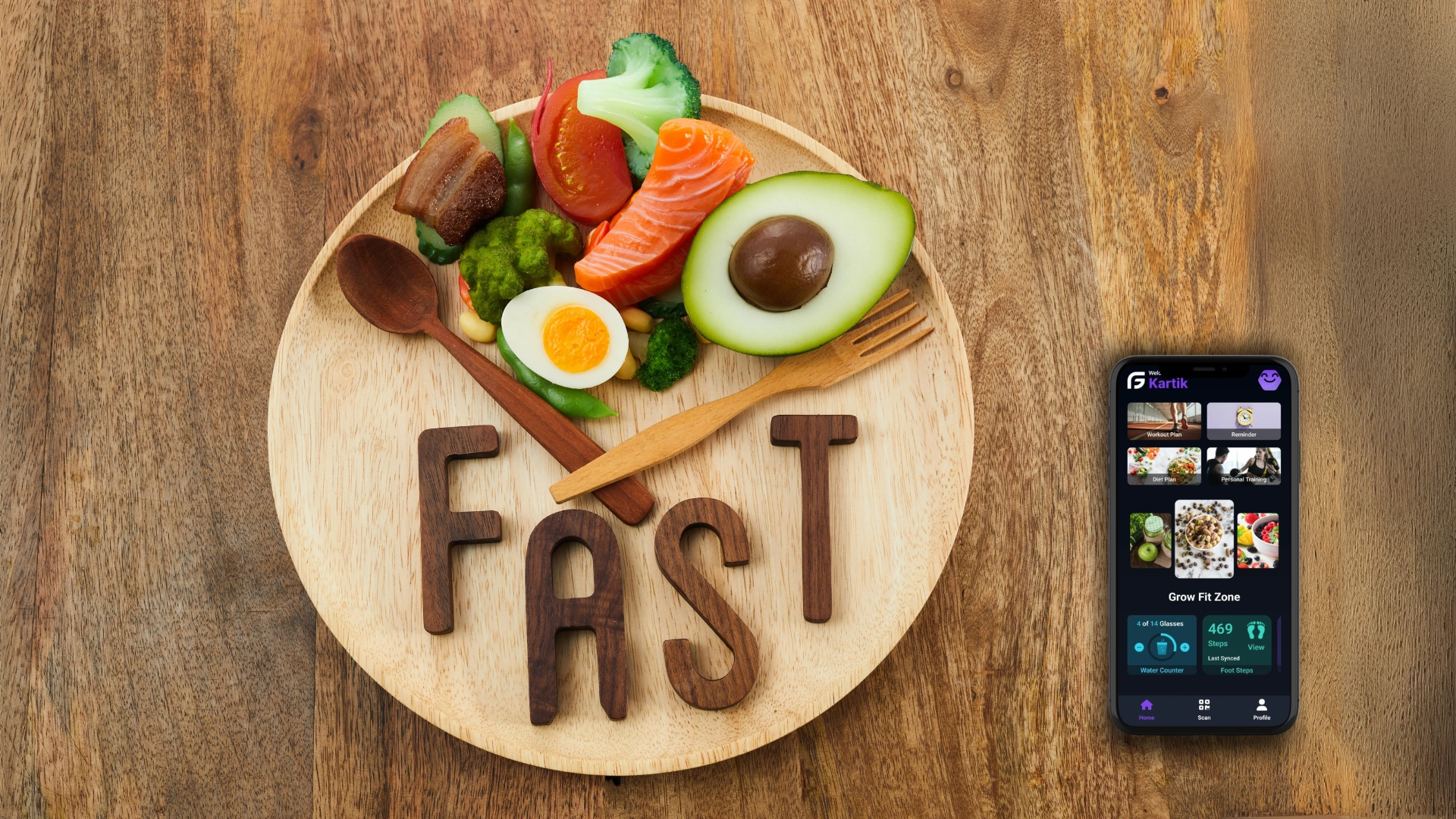Intermittent Fasting: A Beginner’s Guide to Time-Restricted Eating
The practice of intermittent fasting has grown in favor as a successful weight-loss method that emphasizes timing of meals as well as content. Significant health benefits from this dietary strategy include weight loss, enhanced metabolic health, and even longer life spans. This beginner’s guide to intermittent fasting will help you learn the fundamentals of time-restricted eating and how to get started if you’re new to it.
What is Intermittent Fasting?

Eating in cycles between periods of fasting and eating is known as intermittent fasting. Intermittent fasting revolves around meal timing, as opposed to conventional diets that emphasize calorie restriction. The 16/8 method—which involves fasting for 16 hours and eating within an 8-hour window—is the most widely used.
Benefits of Intermittent Fasting

• Weight loss: By limiting your eating window, you naturally consume fewer calories.
• Improved insulin sensitivity: Fasting can help regulate blood sugar levels.
• Cellular repair: Fasting triggers a process called autophagy, where cells remove waste material.
• Increased human growth hormone: This can aid in fat loss and muscle gain.
• Potential longevity benefits: Some studies suggest intermittent fasting may extend lifespan.
Getting Started with Time-Restricted Eating

1. Choose Your Fasting Window
Start with a 12-hour fast (e.g., 8 pm to 8 am) and gradually increase to 16 hours as your body adapts.
2. Stay Hydrated
Drink plenty of water, black coffee, or unsweetened tea during your fasting period to stay hydrated and help curb hunger.
3. Break Your Fast Wisely
When it’s time to eat, start with a balanced meal that includes protein, healthy fats, and complex carbohydrates.
4. Focus on Nutrient-Dense Foods
During your eating window, prioritize whole foods like vegetables, fruits, lean proteins, and healthy fats.
5. Be Consistent
Try to maintain the same eating schedule every day, even on weekends, to help your body adjust.
Common Challenges and How to Overcome Them

• Hunger pangs: These usually subside as your body adapts. Stay busy and hydrated during fasting periods.
• Social situations: Plan your fasting schedule around social events or be flexible when necessary.
• Overeating during eating windows: Practice mindful eating and focus on nutrient-dense foods to avoid this pitfall.
Is Intermittent Fasting Right for You?
Although many people find that intermittent fasting works well for them, it’s not a good fit for everyone. Before beginning any fasting program, people who are pregnant, have a history of eating problems, or have certain medical conditions should speak with a healthcare provider.
Tracking Your Progress

To maximize your success with intermittent fasting, consider:
• Keeping a food diary to ensure you’re getting adequate nutrition during eating windows
• Monitoring your weight and body measurements
• Paying attention to energy levels and overall well-being
Recall that intermittent fasting is a way of life, not a short-term solution. Be patient with the process and allow your body to adjust. Before beginning intermittent fasting, as with any major dietary change, it’s a good idea to speak with a healthcare provider, particularly if you have any underlying medical concerns.
You can take advantage of intermittent fasting’s potential for weight loss and enhanced general health by learning the fundamentals of time-restricted eating and adhering to these recommendations. To choose the intermittent fasting schedule that is most effective for you, start off cautiously, pay attention to your body, and make adjustments as necessary.
FAQ’s
1. What is the most common intermittent fasting method for beginners?
The 16/8 approach, which involves fasting for 16 hours and eating within an 8-hour window, is the most widely used strategy for novices. For instance, you may eat between 12 and 8 PM then fast from 8 to 12 PM the following day.
2. Can I drink anything during the fasting period?
Yes, you are allowed to have unsweetened tea, black coffee, and water while fasting. These drinks won’t ruin your fast and contain almost no calories. Drinks containing artificial sweeteners or added sugars should be avoided, though.
3. Will intermittent fasting cause muscle loss?
Intermittent fasting shouldn’t result in appreciable muscle loss if done properly. In fact, it can boost the generation of human growth hormone, which promotes the preservation of muscle. Make sure you’re getting enough protein during your meal window and include strength training in your regimen if you want to keep your muscle mass.
4. Is it okay to exercise while fasting?
Yes, a lot of individuals work out without any problems whilst fasting. Some even claim increased vitality and attention. But pay attention to your body, and make any necessary adjustments. If you’re not used to fasting, you may want to plan long, intensive workouts within the window when you eat so that your body becomes used to it.
5. How long does it take to see results from intermittent fasting?
Although results can vary, many claim to have noticed changes after consistently engaging in intermittent fasting for two to four weeks. These modifications could include better digestion, more energy, and weight loss. Recall that 1-2 pounds of weight loss per week is usually sustainable.






